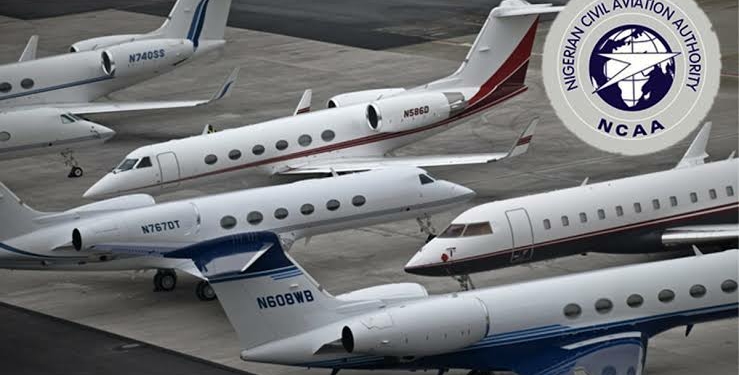Exactly 35 years after the amendment of ground handling charges, the Nigeria Civil Aviation Authority has approved new safety threshold charges for air cargo companies.
The amendment was last made in 1986 but the new rates would commence from October 1, 2021 for international airlines and January 1, 2022 for domestic operators.
The NCAA approved between $1,500 and $5,000 (passenger and cargo flights) for handlers for a narrow and wide body aircraft, respectively, while domestic operators will now pay between N20,000 and N70,000, depending on the aircraft type.
Narrow body aircraft are Boeing B737, Airbus A320, ER 135 and ATR, while wide body aircraft are B767, A330, B777, B747 and B787.
Other African ground handling companies charge operators as much as $4,000, while in Nigeria, airlines pay $400 for the same services.
In Senegal ground handling fee costs $2,250 for narrow-body aircraft and $5,259 for wide-body, while in Guinea, it cost $1,673 for narrow and $4,715 for wide body aircraft.
Cameroon charges $1,400 for narrow and $4,500 for wide, while Sierra Leone charges $2,250 for narrow and $5,250 for wide and in Ghana, it’s $1,500 for narrow-body and $4,150 wide body aircraft.
In Nigeria, the rates are between $400 and $1,139 for narrow and $3,000 and $3,200 wide-body aircraft depending on the negotiation of the international airline. But with this approval, Nigerian ground handling companies can now charge the same handling rates as their counterparts in the sub-African countries.
A circular signed by Director General of the NCAA,Captain Musa Nuhu, dated September 6, 2021 with the reference number: NCAA/DG/AIR/11/16/315, addressed to “All Airlines and Ground Handling Companies” (foreign and local) with the subject: “Safety Threshold Ground Handling Charges,” reads in part: “All stakeholders are invited to note that the new ground handling rates for international and domestic operations will become effective on 1st October, 2021 and 1st January, 2022, respectively.
All stakeholders are directed to ensure full compliance with the safety threshold ground handling charges. Any change to these charges must be done in formal consultation with and approval of NCAA. Please be guided accordingly.”
Reacting to the development, Chairman, Association of Ground Handlers (AGHAN), Mr. Olaniyi Adigun, praised the Minister of Aviation Hadi Sirika for approving the amendment. Also speaking kn the impact the previous charges had and the current charges would have on the economy, he explained that other African countries charging at $4,000, remit 5 per cent of about $200 to their governments while the Nigerian Government is getting just $20 stressing that the disparity was miles apart and is a lot of capital flight out of the country.
“The government is getting five per cent of our total annual revenue and with more money, we will have improved manpower, create more jobs for teeming Nigerians. At it is, we have a lot of unemployed youths, but we are not able to attract them and even the ones that we have, we couldn’t retain them. There will be better service delivery, safer sky and encouragement of more investors to come in.
“AGHAN is coming out with an MoU which will stipulate disciplinary measures for violators of the directive. No one wants to be the odd one out. Also, what will you gain for charging below the approved safety threshold handling charges? You can go above, but you cannot go below the approved rates.
“If the hospitality industry and airlines are charging various rates for their services, what stops us from replicating the same in the sub-sector? It is a win-win situation for all us.
“This is the first time in a long while that the aviation industry is speaking with one voice across board. The minister himself is an aviator; he understands our plight and he knows the right thing to do.
“I also want to thank the minister for appointing technocrats across board. The DG of NCAA for instance has wealth of experience in the sector and was a Nigerian representative at ICAO for several years before he was appointed DG NCAA. Kudos to him for ensuring that this sub-sector is regulated.
“In fact, the federal government saved us from extinction because the low pricing was gradually killing the ground handling sub-sector. Income derived from our operations could not sustain us vis-à-vis the current reality on ground. Dollars have gone up and most of what we do require dollars. For you to even operate in this sector, you must be certificated, which can only be achieved through training.
“With the right pricing in handling rates, we will be able to provide quality, efficient and safe service delivery to our clients. We will be able to compete with any service provider gradually and we will be able to acquire modern equipment that can facilitate handling,” Adigun said.










Discussion about this post